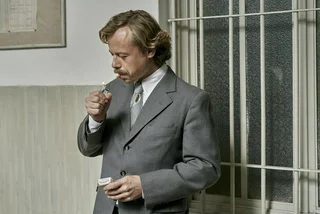The Czech Republic is celebrating one of the most pivotal moments in its twentieth-century fight against Communism this month. In January 1977, the Charter 77 declaration was released, calling for respect for human rights and democracy in the Czech Republic.
The Charter was drawn up with reference to the pledges made by Communist Czechoslovakia in the Helsinki agreements of 1975, issuing its first declaration on January 1, 1977. A total of 1,898 signatories supported Charter 77 until January 1990.
It officially ended its operation on November 3, 1992, some three years following the collapse of communism in Czechoslovakia.
In honor of the Charter's 45th anniversary, the Czech Republic’s new coalition government has pledged to be guided by its principles. In a resolution drafted by Deputy PM Vít Rakušan, Prime Minster Petr Fiala's government said it would "adhere to the traditions of the many years of Charter 77's struggle for human and civic rights and for democracy."
So, what was Charter 77, who was responsible for its creation, and why does it matter to the Czech government of today?
Charter 77
Charter 77 was a document drawn up by a group of Czechoslovak political dissidents including future president Václav Havel. Its publication led to an informal civic resistance movement of the same name operating until the fall of Communism in 1989. Signatories of the original document included well-known intellectuals such as Jiří Němec, Václav Benda and Petr Uhl, who died last year.
The document criticized the Communist regime for failing to implement human rights provisions in a number of international agreements it had signed. It was first published on January 6, with a list of 242 initial signatories. The regime quickly confiscated copies of the document, but it was reproduced and distributed in “samizdat” form (illicit makeshift copies passed from person to person).
The text was also quickly picked up and published by western newspapers and transmitted in audio form by international broadcasters. Its creators, including Havel, were arrested and imprisoned before they could officially hand over the document to the parliament and other state institutions.
Anticharter
The Communist regime responded to Charter 77 with an 'Anticharter,' led by national art unions. The Anticharter condemned Charter 77 and called for the persecution of those who signed it. It was presented only days after Charter 77 was made public, on January 12, 1977 at Prague's National Theater.
The Anticharter was signed by thousands of Czechoslovakia’s leading artists, including beloved cultural icons such as Karel Gott and Zdeněk Sveřák. Some who signed the Anticharter later claimed they were pressured to do so or were misled about its contents. Others say they never signed it and the regime lied about their participation.
Those who refused to sign the Anticharter faced punishment by the regime, with some excluded from performing in their artistic field until the fall of Communism.
Impact then and now
Persecution of Charter 77 signatories led to the establishment of the Committee for the Defense of the Unjustly Prosecuted, making the public aware of the fate of those who signed the Charter. Punishment of those who signed the Charter continued into the 1980s.
Those who participated in Charter 77 later played a key role in the fall of the Communist regime in the Velvet Revolution, with some, such as Havel, becoming important political figures in post-Communist Czechoslovakia.
Recognizing the Charter's importance in 2022, Rakušan told journalists, "I think this is a crucial moment showing our government's approach to history and to the victims of the totalitarian regimes we experienced in the 20th century."












 Reading time: 3 minutes
Reading time: 3 minutes 







 English
(Proficient)
English
(Proficient)
























